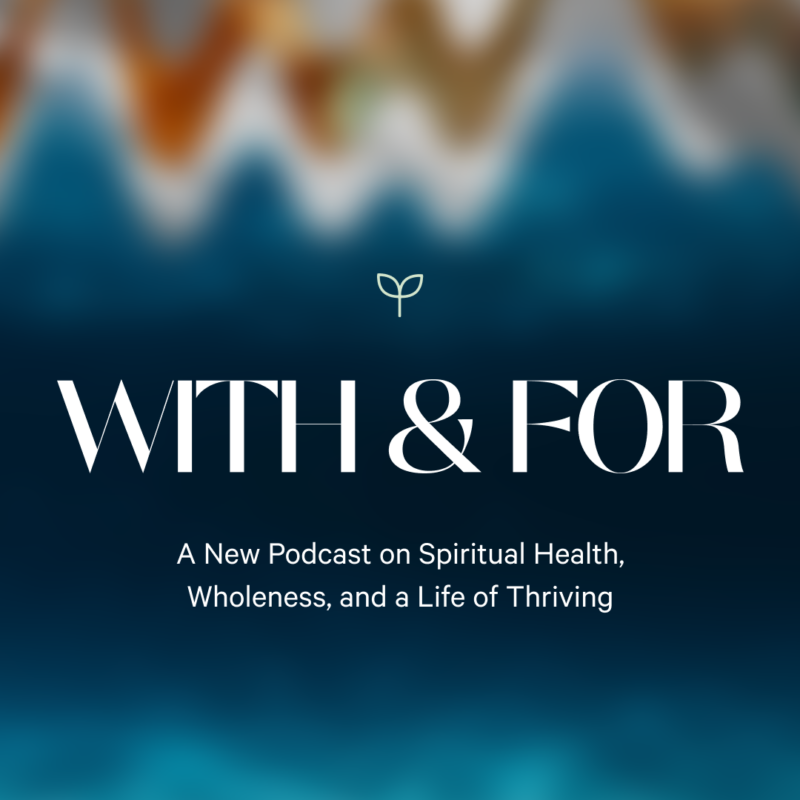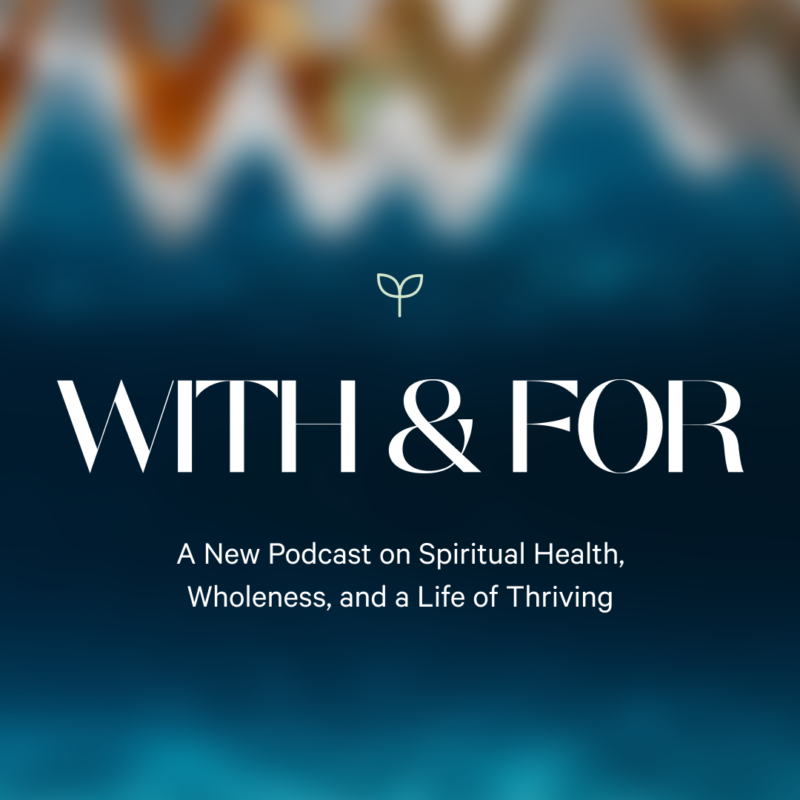Pam King: Welcome to With & For, a podcast on spiritual health and thriving on Purpose. I’m Dr. Pam King.
Hello, my friends. I am so very excited for the launch of With & For in January. I can’t wait. And really, so much so that I wanted to share some teasers through the fall and early winter as we lead up to our January launch in the new year.
The clip I want to share today features Dr. Richie Davidson.
He’s a pioneer in contemplative neuroscience, and does cutting edge research on the neuro-correlates of emotion and meditation.
He’s also the founder of the Center for Healthy Minds at the University of Wisconsin Madison, where he’s the William James Professor of Psychology and Psychiatry.
Here he is explaining his approach to human flourishing—what he calls the four pillars of well-being.
Richie Davidson: The four pillars of well-being evolved in an effort to identify the core constituents of wellbeing that also exhibit plasticity, that we know can change in response to experience in a response to training. And we wanted to identify pillars that have been scientifically examined, investigated in, in robust scientific research, and also pillars that have been identified in contemplative traditions, as being important for the cultivation of.
Human flourishing. and so, we have arrived at four pillars. The first is awareness, and awareness is about, how we deploy our attention.
it also involves self-awareness and it involves a capacity that psychologists and neuroscientists call meta-awareness. Meta-awareness is the capacity to know what our minds are doing.
The second pillar we call connection, and connection is about qualities that are important for healthy social relationships, qualities like appreciation, and gratitude and kindness and compassion.
The third pillar is one we call insight. And insight is unusual. It It’s not present in any other framework for understanding wellbeing that we know of. but insight is, about self-knowledge and particularly knowledge of the narrative that we carry around about ourselves.
All, all of us, every human being has some kind of narrative, the story that we tell ourselves about who we are, and that’s a necessary construct to help us navigate through the world. But if we overly identify with it, it can really place blinders on our ability to interact with the world
We know that there are some people who have a very negative narrative. They have negative self-beliefs, they have low self-esteem, and they hold those beliefs to be a veridical description of who they are. And of course that’s a prescription for depression.
And one of the key elements here is not so much having them initially change the narrative, but change their relationship to the narrative so that they can see that the narrative is really a constellation of thoughts, that are fundamentally no different than other thoughts.
The last pillar, is purpose, and purpose is about finding our true sense of direction, our true north in life.
And here it’s again, not so much about finding something more purposeful to do with our life, but how can we find meaning and purpose in that which we are already doing, including the pedestrian activities of daily life? Can washing the dishes and doing your laundry be connected to your sense of purpose?
And the answer is, of course, it could be. uh, but it requires just a little bit of reframing. and so those are the four pillars.
Pam King: Thanks for listening and do not forget to subscribe so you can join us when we launch in January 2024. With & For is a production of the Thrive Center at Fuller Theological Seminary.
 Dr. Richard J. Davidson
Dr. Richard J. Davidson
Dr. Richie Davidson is a pioneer in contemplative neuroscience, and does cutting edge research on the neuro-correlates of emotion and meditation. He's also the founder of the Center for Healthy Minds at the University of Wisconsin Madison, where he's the William James Professor of Psychology and Psychiatry.
Episode Summary
With & For is launching in January 2024! Subscribe now in your favorite podcast app. In this preview clip, With & For guest Dr. Richie Davidson—a pioneer in contemplative neuroscience—shares how his research on the neuroscience of emotion and meditation has led him to identify four pillars of well-being and human flourishing.
Show Notes
- Don't forget to subscribe to With & For, which is launching in January 2024.
- Pam King introduces Dr. Richie Davidson, the William James Professor of Psychology and Psychiatry and founder of the Center for Healthy Minds at the University of Wisconsin Madison.
- Pillar 1: Awareness
- Pillar 2: Connection
- Pillar 3: Insight
- Pillar 4: Purpose
About Dr. Pam King
Dr. Pam King is Executive Director the Thrive Center and is Peter L. Benson Professor of Applied Developmental Science at Fuller School of Psychology & Marriage and Family Therapy. Follow her @drpamking.About With & For
- Host: Pam King
- Senior Director and Producer: Jill Westbrook
- Operations Manager: Lauren Kim
- Social Media Graphic Designer: Wren Juergensen
- Consulting Producer: Evan RosaSpecial thanks to the team at Fuller Studio and the Fuller School of Psychology & Marriage and Family Therapy.
About the Thrive Center
- Learn more at thethrivecenter.org.
- Follow us on Instagram @thrivecenter
- Follow us on X @thrivecenter
- Follow us on LinkedIn @thethrivecenter
Explore More

Pamela Ebstyne King
Intro: A New Podcast on Spiritual Health, Wholeness, and a Life of Thriving
What does it mean to thrive today? What can we do to pursue lives of wholeness and spiritual health? What can we learn from psychological science and spiritual wisdom to transform our relationships, our work, and our personal wellbeing? Dr. Pam King introduces With & For, a podcast for growth seekers and people focused leaders that plumbs the depths of psychological science and spiritual wisdom to offer practical guidance toward spiritual health, wholeness, and a life of thriving. With & For is a new podcast exploring psychology, spirituality, and culture, with the aim of helping you grow wholly alive, with…

Mindfulness
A Practice: Reflecting on Love and Goodness Towards Others
This practice helps build compassion for the struggles of others by shifting our perspective and imagining how we can offer love.

Practices
A Radical Idea: Becoming Skilled in Our Own Well-being
Wellbeing is something we can actively cultivate through practice, or through a practice of "mental hygiene."
